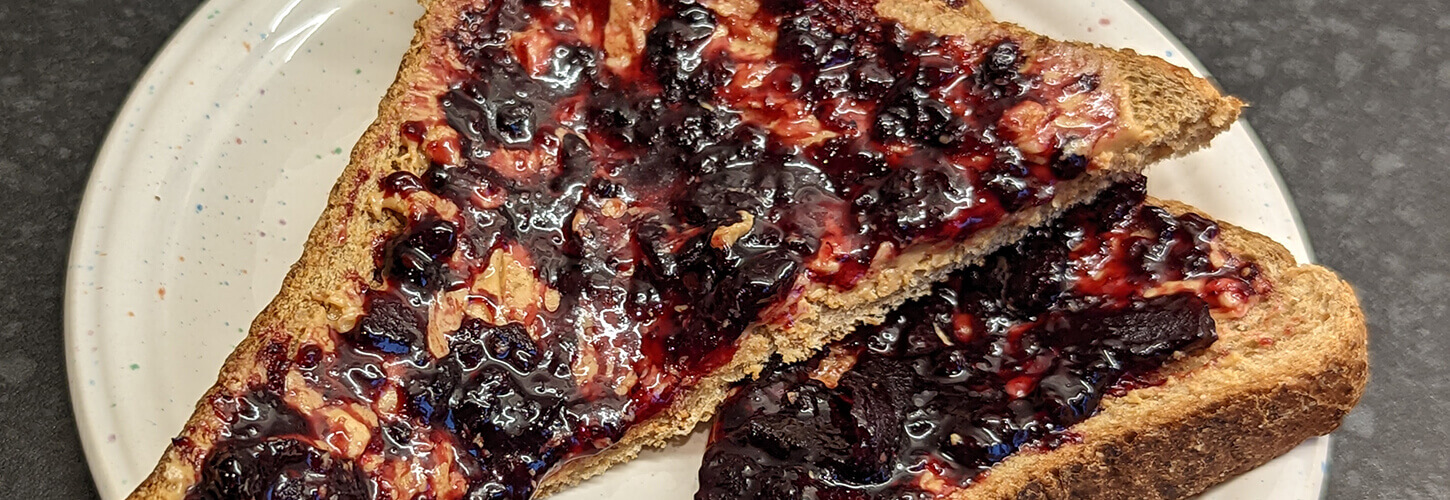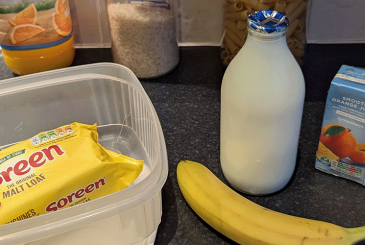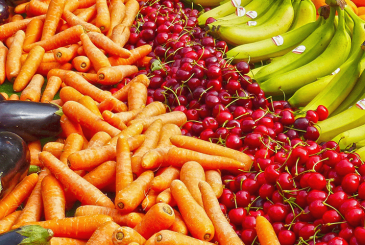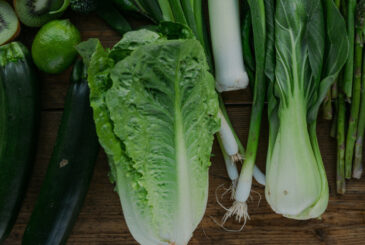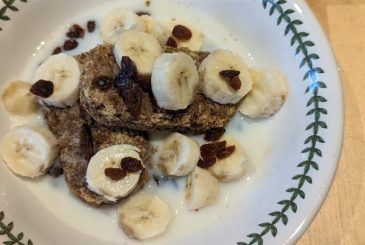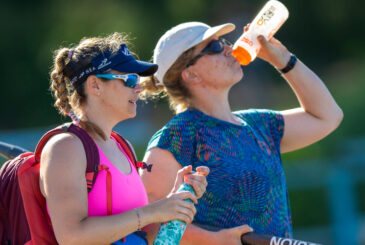For rowers at any level, adopting good habits away from training is really important if you want to stay in good physical and mental health and achieve your potential. Hatty Bates discusses four beneficial eating habits to support rowing performance and training
Eating habit 1: Always have a first breakfast
It’s not unusual for rowers to start training very early in the morning before heading off to work or class, or even just to get the best conditions at the weekends.
Regardless of the times of day, training sessions need to be sufficiently fuelled to be able to train at the right intensity for the duration of the session. And that remains true whether you’re on the water, the erg, or in the gym. Following a good night’s sleep, the body’s battery stores are likely to be slightly depleted. Therefore, it is important to ‘recharge’ these batteries by having a carbohydrate-rich breakfast beforehand.
Aim to consume 1-2g of carbohydrate per kilogram of your body mass. For example, a 90kg individual would need to consume between 90-180g of carbohydrate.
Great examples include porridge, muesli, or jam and peanut butter on toast. In addition, portable breakfasts such as overnight oats and smoothies are easy to consume while on your way to training. For more ideas, read my articles on Simple ways to fuel an early morning session and What you eat before training can have a significant impact on your performance.
Eating habit 2: Start batch-cooking
Ever dreaded the thought of having to cook and instead opted for fast-food with low nutritional quality?
Frozen homemade meals, which you can prep in advance and heat up in minutes are great for days when you get home late from training or when you just really don’t feel like cooking. This would be particularly important after a late training session, when ideally you need to eat a carbohydrate and protein rich meal within an hour of finishing training.
There are several ways to ‘batch cook’, such as spending 2-3 hours at the weekend making a selection of meals for the forthcoming week or cooking double portions at a meal so that you can use leftovers for lunch or dinner the following day.
Start by planning your meals for the next few weeks to work out what you can batch cook. Meals which can be prepped in advance and frozen include the likes of pasta bakes, tagines, stews, and curries.
Eating habit 3: Pack in the veggies
Being able to train consistently and illness free is important to optimise performance, and make sure you’re available for the crews you want to be in. Eating five portions of fruit and veg a day will help to support your immune system and keep the bugs at bay.
Five-a-day: How to do it
Top your breakfast cereals with berries as well consuming at least two portions of vegetables with lunch and dinner.
Vegetable sticks, bananas and apples can also be eaten as snacks throughout the day.
Eating habit 4: Stay hydrated
Long, high-intensity and, sometimes, multiple training sessions per day could lead to a high sweat rate and therefore the possibility of dehydration. Therefore, it is important that rowers are conscious of and proactive when it comes to their hydration strategies.
Drink a pint of water alongside all main meals
Remember that drinking sufficient fluids is just as important on a rest day as it is on a training day. Often, maybe because we don’t visibly sweat or get out of breath, we sometimes forget to drink enough on a rest day. As a rough guide, aim to drink a minimum of two litres of fluid, or approximately 35ml/kg body weight, on non-training days. To achieve this, start forming small habits such as drinking a pint of water alongside all main meals and keeping a water bottle with you throughout the day.
On training days, you will need to drink more than two litres (or 35ml/kg) to replace the fluids you have lost through sweating, even in cold weather. Aim to have at least 5-7ml/kg of water with your pre-exercise meal and 3-5ml/kg with your pre-exercise snack.
Rehydrating sufficiently after training is also important. Drinking a milk-based smoothie after training will not only help with rehydration but it would also support muscle recovery and energy replenishment due to its protein and carbohydrate content.
Saliva contains proteins with antimicrobial properties which prevent virus and bacteria entering the mouth.
Did you know? Hydration also plays a role in supporting the immune system. Saliva contains proteins with antimicrobial properties which prevent virus and bacteria entering the mouth. Therefore, it’s important to avoid a dry mouth and remain hydrated throughout the day.
Summary
Becoming a successful rower is not only about the quality of your training, but also the lifestyle you lead and habits you form when you’re off the water. Although some habits can take a while to embed, being patient and trying to better something (even if it’s small) every day could enhance the quality of your training, support recovery and keep you illness and injury free.
What do YOU want to read about on British Rowing Plus?
What do you find interesting here on British Rowing Plus that you’d like more of? What haven’t we covered yet that you’d like to read about?
Let us know by emailing [email protected]


